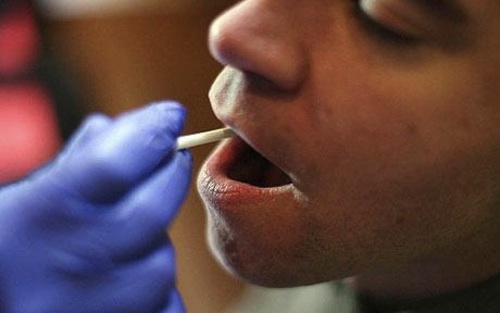If you’ve never heard of cortisol, here’s a quick primer:
Cortisol, known more formally as hydrocortisone (INN, USAN, BAN), is a steroid hormone, to be more specific a glucocorticoid, produced by the zona fasciculata of the adrenal cortex.[1] It is released in response to stress and a low level of blood glucocorticoids. Its primary functions are to increase blood sugar through gluconeogenesis; suppress the immune system; and aid in fat, protein and carbohydrate metabolism.[2] It also decreases bone formation.
Lot of science terms in there, to be sure — but here’s what you need to know now. According to a new study, mouth-swabbing teenage boys and detecting high levels of cortisol — when coupled with mild levels of self-reported depression — can make the teenager 14 times more likely to suffer clinical depression later in life.
Here’s the “money quote” about what this means:
“This is the emergence of a new way of looking at mental illness,” Joe Herbert of the University of Cambridge and one of the study authors said at a news conference on Monday.
Currently, there isn’t a standard biological test to spot depression, so this could help in that area. However, there are limitations. This was conducted on 1,800 teenagers age 12-19, including girls and boys; it was found much more effective a predictor in boys — so spotting female depression may not have a tie back to cortisol. Also, the study relies on self-reporting of depression as a component; some 12-to-19 year-olds may not be capable of that reliably. And finally, while depression is a mental illness, extending the reach to “treating mental illness” as in something akin to “preventing school violence” may be a reach — I don’t think the researchers mean that at all. While school shooters likely have a history of depression, and screening for it at 12 would be a good step, there are other, broader factors involve in those whose depression becomes violence — including just showing empathy to those who are struggling.
As a screen for clinical depression (in males), which 1 of 6 adults report at some point in their lives, this has a lot of promise. As a broader “we-can-identify-potential-problems-before-they-emerge” idea in society, it may have a ways to go.
Note this, from Reuters:
“Depression is one of the greatest global burdens of disease – it’s a much bigger problem than heart disease or cancer and it’s much more expensive.”
Depression affects around 350 million people worldwide and at its worst can blight patients’ lives for decades, affecting their relationships, work and ability to function. It can also lead to suicide, which alone leads to a million deaths a year.
“Depression is a terrible illness,” said Ian Goodyer, a child and adolescent psychiatrist who led the research team. “(And) we now have a very real way of identifying those teenage boys most likely to develop clinical depression.”
And note this, via The Los Angeles Times:
Do hormones drive volatility in world financial markets? According to new research, chronically high levels of the stress hormone, cortisol, can alter the behavior of beleaguered financial traders, boosting their risk aversion and inspiring “irrational pessimism.”
In a paper published Monday in journal PNAS, researchers found that London financial traders experienced a 68% increase in cortisol levels during periods of market volatility.
When researchers reproduced similar levels of chemicals in human subjects in the lab, they observed a “large” change in the study participants’s willingness to take on risk.
Ultimately, a better understanding of cortisol levels could help with our depression tallies (which ties back to health care costs) and perhaps periodically stabilize our markets. Kinda interesting that one adrenal hormone can shift the ways of the world like that, no?

This is my first time pay a visit at here and i am
actually pleassant to read all at one place.